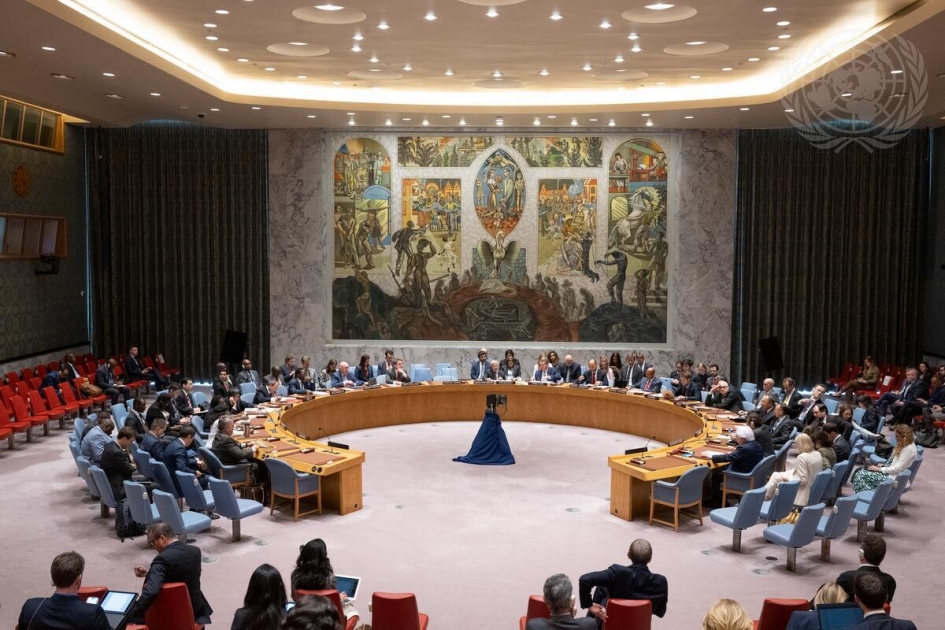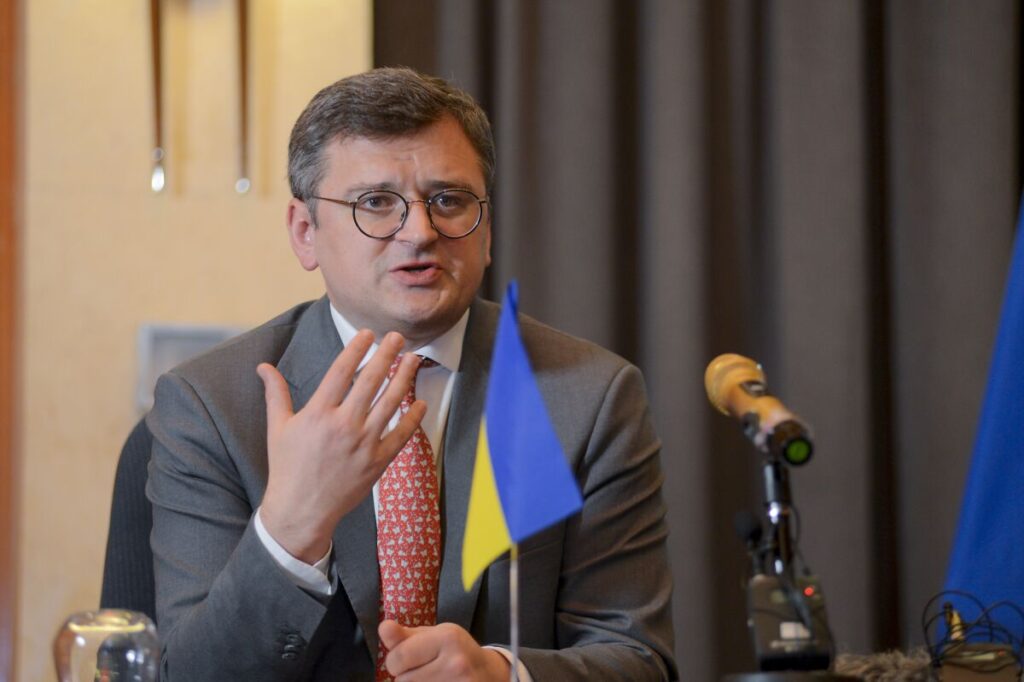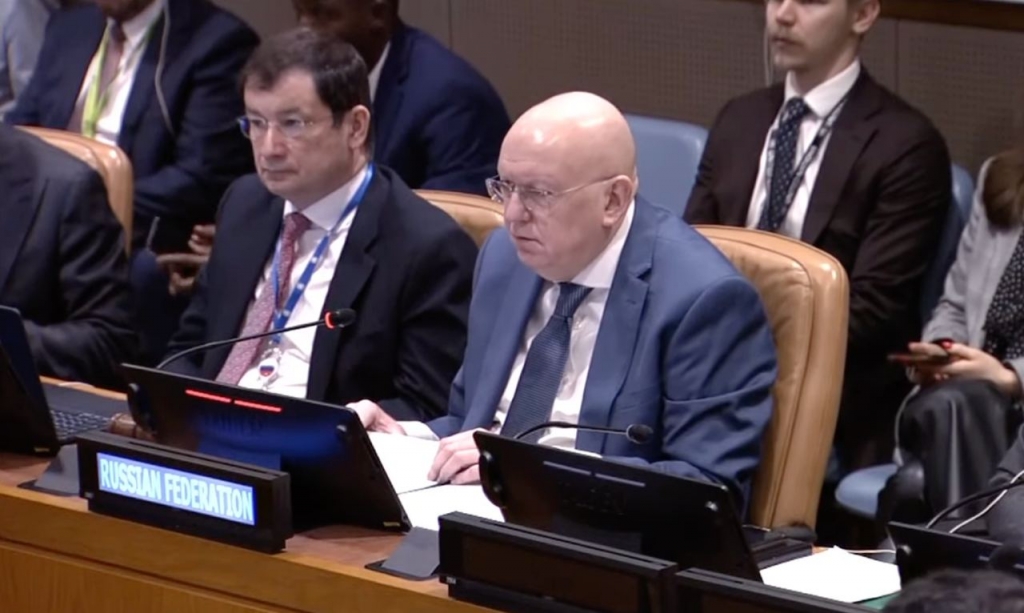
The Pan Afrikanist Watchman
The Ukrainian version
By Dmytro Kuleba

- Minister of Foreign Affairs of Ukraine
“In the early hours of June 6, 2023, Russian forces blew up the Kakhovka dam in the occupied territory in the south of Ukraine.
This massive concrete structure held 18.3 cubic kilometers of water. The civilian population and the environment downstream of the Dnipro River are already suffering tremendous damage as a result of floods.
President Zelenskyy immediately convened the National Security and Defense Council of Ukraine. Ukrainian law enforcement and emergency services are working hard to mitigate the consequences and save lives.
Ukraine calls an emergency meeting of the United Nations Security Council and brings the issue of the Russian terrorist act to the International Atomic Energy Agency’s Board of Governors. We will also cooperate with the EU’s Civil Protection Mechanism and other international mechanisms to mitigate consequences and bring Russia to account.
In light of developments on the battlefield, Russia’s deliberate and long-planned terrorist act turned the man-made flood into a weapon.
The harm to the environment is of particular concern. Entire ecosystems are facing long-term and irreversible harm because of the floods. Animals in the Nova Kakhovka zoo have already died in the rising water, and this is only the beginning of harm for fauna in the south of Ukraine, along the Dnipro river, and in the Black Sea. We are witnessing ecocide on a regional, not just Ukrainian, scale.
We call on all governments and international organizations to condemn Russia’s actions and support President Zelenskyy’s Peace Formula. Its items “Prevention of Ecocide,” “Nuclear Safety,” and “Energy Safety” are all highly relevant right now.

The Kakhovka disaster is yet another proof that Russia is a terrorist state. Every country, parliament, and international organization should recognize Russia as such — without delay.
We also call on the EU and G7 member states to impose new devastating sanctions on Russia, including its missile industry and atomic energy sphere.
Russia will be held accountable for the destruction of the Kakhovka dam and other crimes”.
The Russian version
By Vassily Nebenzia
- Permanent Representative of the Russian Federation to the United Nations
On the night of June 5 to 6, the Kiev regime committed an unthinkable crime. They blasted the dam of the Kakhovka Hydroelectric Plant, which resulted in an uncontrolled release of water downstream of the Dnieper River.
Entire neighborhoods were flooded, and thousands of people had to be evacuated. The evacuation is already underway. Devastating damage has been caused to the farmlands in the region and the ecosystem at the mouth of the Dnieper.
I underscore that as early as last year, leaders of Ukrainian military publicly claimed ready to blast the dam in order to obtain some military advantage.
Here is a quote from a Washington Post article dated 29 December 2022. Please listen carefully.
“Maj. Gen. Kovalchuk considered flooding the river. The Ukrainians, he said, even conducted a test strike with a HIMARS launcher on one of the floodgates at the Nova Kakhovka dam, making three holes in the metal to see if the Dnieper’s water could be raised enough to stymie Russian crossings but not flood nearby villages. The test was a success, Kovalchuk said, but the step remained a last resort. He held off.”
We warned the global community and UN leadership about this. At the end of October 2022, we circulated as an official UNSC document a letter of the Permanent Mission of Russia where we drew attention to Kiev’s plans to destroy the Kakhovka Hydroplant.
We regret that our calls to the Secretary-General to do everything possible to prevent this appalling crime remained unheeded.
Feeling its total impunity and being encouraged by Western sponsors, the Kiev regime decided to fulfil this terrorist plot this time.
It becomes ever harder to persuade everyone that the Ukrainian conflict allegedly was the consequence of “unprovoked Russian aggression”.
These days, only the US and its closest allies try to deny that ever since the unconstitutional Maidan coup, the West, with zeal and purpose, had been preparing Ukraine for a war with Russia.
Thereby they ignored the nine-year-long war that the Maidan government waged on the Russian speaking population in the east and southeast of the country, which claimed thousands civilians’ lives, and which our special military operation was meant to stop in the first place.
We already see a well-coordinated information, or rather disinformation campaign. We hear statements by Western states and by Kiev, and we will definitely hear more in this chamber today that will try to assert that it is Russia who blasted the Kakhovka dam.
These statements will run in vein with the same flawed logic, which attributes to us the “self-aimed bombardments” of the Zaporozhye Nuclear Power Plant or blasts at the Nord Stream pipes. Such “conclusions” are suggestive of schizophrenia, maybe not even latent one.
Kiev’s planned sabotage of a critical infrastructure facility is a very dangerous one. By its essence, it may be considered a war crime or a terrorist attack. Attacks on installations containing dangerous forces are directly banned by the international humanitarian law. Besides, dams are particularly mentioned in Article 56 of the first Additional Protocol to the 1977 Geneva Conventions.
Kiev’s sabotage pursues two obvious goals.

First, they want to attract maximum broad attention in order to create favourable conditions and relocate the armed forces to sustain Ukraine’s broadly advertised “counter-offensive”, which is clearly getting bogged down and is not achieving the goals set by Kiev.
By the data from our Defense Ministry, Kiev has started to build protective positions on the right bank of the Dnieper, which indicates that Ukrainian forces intend to turn to defense.
The second objective of today’s attack is to inflict largest possible humanitarian damage on the population of extensive territories, which is inevitably incurred when a huge water and energy facility is destroyed.
Currently, authorities of the Kherson region of the Russian Federation are evacuating people from areas affected by the flood.
The blast of the Kakhovka Hydroplant has already caused an environmental disaster – dozens of settlements downstream of the Dnieper are being flooded, the Kakhovka reservoir and the North Crimean channel, which supply water to the Crimean Peninsula, are shallowing.
In other words, Kiev once again decided to take revenge on the Crimeans for their choice in favour of Russia and leave the population of Crimea without water. We also do not rule out that there may be an underlying attempt at a provocation against the Zaporozhye Nuclear Power Plant.
The Kiev authorities also enhanced the release of water at the Dnepropetrovsk Hydro-plant. This causes even larger flooding and proves that this sabotage was carefully premeditated in advance in order to expose the people of the area to a heavier plight.
The responsibility for this unfolding tragedy fully rests with the Kiev regime and its Western masters who pump up Ukraine with weapons.
This act follows up on the systematic tactic that Kiev has been using since 2014. This tactic is about targeting purely civil facilities for the sole purpose of intimidating the civilian population. This is explicitly prohibited by Article 51 of the mentioned Additional Protocol.
Terrorist methods have become part of the official playbook of Kiev regime, which is openly bragging about it. They are responsible for the explosion on the Crimean Bridge, killings of Daria Dugina and Vladlen Tatarsky, the assault on Zakhar Prilepin.
Head of Ukraine’s military intelligence Kirill Budanov openly announces plans for eradication of Russians by terrorist means. Yet Western delegations did not say a word to condemn those steps.
The Kiev regime has good teachers to learn from who have the exploded Nord Stream and targeted strikes against the Tabqa dam in Syria on their track record.
The West is accustomed to having the dirty job done with someone else’s hands. Yet this time they will not be able to hide behind the incapable Kiev regime. We realize who exactly does the planning and preparations, and who authorizes sabotage of such scale.
We find it deeply puzzling that the UN Secretariat each time refuses to condemn Kiev’s attacks, citing a lack of information, as, for example, with regard to the shelling of the Zaporozhye NPP by Ukrainian armed forces, although it is obvious to everyone from which side the shelling occurs.
At the same time, the leadership of the Secretariat does not hesitate to replicate politicized conclusions that allegedly all such crimes are the result of Russia’s actions in Ukraine. This is an unacceptable deviation from the principle of objectivity and impartiality prescribed by Article 100 of the UN Charter.
We call on the Secretary-General to finally give an objective assessment and condemn the terrorist actions of the Kiev regime.
All the circumstances of the barbaric attack on the Kakhovka Hydroelectric Power Plant must be clarified. It is unacceptable that the situation with the Bucha tragedy or the explosion of the Nord Stream pipelines be repeated.








